— Roseanne Barr (@therealroseanne) May 29, 2018I apologize to Valerie Jarrett and to all Americans. I am truly sorry for making a bad joke about her politics and her looks. I should have known better. Forgive me-my joke was in bad taste.
CBS News
written by Andrea Park
Tuesday May 29, 2018
Stellar ratings and an apology weren't enough to mitigate Roseanne Barr's racist comments, and now ABC is pulling the plug on "Roseanne." ABC Entertainment president Channing Dungey confirmed the network has decided to cancel the "Roseanne" reboot following Barr's tweet comparing former Obama White House aide Valerie Jarrett to an ape.
Dungey said in a statement, "Roseanne's Twitter statement is abhorrent, repugnant and inconsistent with our values, and we have decided to cancel her show." In 2016, Dungey made headlines when she became the first African-American to run the entertainment division of a major broadcast television network.
Bob Iger, chairman and CEO of The Walt Disney Company, which owns ABC, shared Dungey's statement on Twitter and added the comment, "There was only one thing to do here, and that was the right thing."
From Channing Dungey, President of ABC Entertainment: "Roseanne's Twitter statement is abhorrent, repugnant and inconsistent with our values, and we have decided to cancel her show."There was only one thing to do here, and that was the right thing.
— Robert Iger (@RobertIger) May 29, 2018
Although Barr had earlier tweeted that she was leaving Twitter, she returned Tuesday night. She retweeted some support she had received -- as well wrote she thought Jarrett was "Saudi" -- and then she issued a statement.
@ValerieJarrett I want to apologize to you. I am very sorry to have hurt you. I hope you can accept this sincere apology!— Roseanne Barr (@therealroseanne) May 30, 2018
ICM Partners, the talent agency that represents Barr, also dropped her as a client. The company sent an email to all of its employees saying, "We are all greatly distressed by the disgraceful and unacceptable tweet from Roseanne Barr this morning. What she wrote is antithetical to our core values, both as individuals and as an agency. Consequently, we have notified her that we will not represent her. Effective immediately, Roseanne Barr is no longer a client."
Reruns of the show also took an immediate hit, with Viacom announcing that it would drop the series from all its channels.
For years I was one of the tabloid reporters charged with the task of exposing @therealroseanne for the world to see. I could tell you when she went out, what she ate, I knew more than anyone. If there is one thing I know for a fact, @therealroseanne is NOT a racist.— Stephen D. Butler (@StephenButler55) May 30, 2018
I'm not a racist, I never was & I never will be. One stupid joke in a lifetime of fighting 4 civil rights 4 all minorities, against networks, studios, at the expense of my nervous system/family/wealth will NEVER b taken from me.— Roseanne Barr (@therealroseanne) May 30, 2018
When Trevor Noah's anti-Semitic tweets came to light, @DonLemon_CNN collected a panel of comedians who reassured us that this is just what comedians do. Tonight Don fetes Roseanne's punishment as justice incarnate. What's with the double standard, @CNN?— Spinoza's rose (@Spinozasrose) May 30, 2018
There is a BLACK character in the movie #BlackPanther named ‘Man-Ape.’ Man-Ape is the leader of the Gorilla tribe. The gorilla tribe is played by all BLACKS.— Oliver McGee PhD MBA (@OliverMcGee) May 30, 2018
Every liberal that is calling for @therealroseanne’s head LOVED & RAVED about Black Panther.
Stop the selective outrage.
Retweet if YOU want @therealroseanne Back on TV! pic.twitter.com/A8y9rrKyeX— Oliver McGee PhD MBA (@OliverMcGee) May 31, 2018
— Jeff Giesea🌿 (@jeffgiesea) May 29, 2018Many of the criticisms of #Roseanne and her tweets are accurate. The problem is that these standards of behavior are rarely if ever applied against left-leaning Hollywood types. The stench of hypocrisy is thick.
Yes, they are often racist without consequences pic.twitter.com/AiSgIsLsCB— Jeff Giesea🌿 (@jeffgiesea) May 29, 2018
Joy Reid: Roseanne should be fired for her social media posts— Jack Posobiec🇺🇸 (@JackPosobiec) May 29, 2018
Also Joy Reid: I honestly do not believe I wrote those hateful social media posts people found on my blog...
Roseanne Barr is a national treasure. ABC is a national disgrace. End of story.— Jacob Wohl (@JacobAWohl) May 29, 2018
Hi @therealroseanne, I know you're not the racist the media & hatefilled vile violent Marxists are making you out to be. I hope that you find a way to continue your show through another venue. You are still loved and respected. Don't let this obvious smear campaign get you down.— Global Awareness 101 (@Mononoke__Hime) May 29, 2018
Get your uneducated ass off Twitter sweetie https://t.co/KtHNzaclJE— ⚔️idris⚔️ (@love4maleconly) May 29, 2018
Aren't you sweet. Thanks for proving me right. Take care. pic.twitter.com/ldP960umjl— Global Awareness 101 (@Mononoke__Hime) May 29, 2018
🙄— CaliforniaLuv (@inminivanhell) May 29, 2018
She called a black Woman an Ape. That’s coded racism. The fact that you support that is disgusting.— Puerto Rican Rain (@rain_writes) May 29, 2018
Black Lives Matter, MoveOn, Media Matters and tons of other Marxist organizations spent 8 years publicly hating the White race. A large segment of the Black community even intentionally segregated itself from White people because they hate them so much. That's blatant racism too.— Global Awareness 101 (@Mononoke__Hime) May 29, 2018
Stop trying to deflect and justify this woman’s racist behavior. She’s been at this for awhile.— Puerto Rican Rain (@rain_writes) May 29, 2018
Every person the Marxist Left doesn't agree with is called a 'racist'.— Global Awareness 101 (@Mononoke__Hime) May 29, 2018
Rosanne had a Black child on her show as part of her family. Rosanne and husband's best friends on the show are Black. The show had a Black producer.
She apologized profusely for her thoughtless tweet.
I’m sorry ma’m but have a black character on her show doesn’t make her tweet any less racist. That’s not how it works.— Puerto Rican Rain (@rain_writes) May 29, 2018
Oookay. A racist person would not want to be near the race they hate. Especially, not want to work with them.— Global Awareness 101 (@Mononoke__Hime) May 29, 2018
You know, like the Marxist Left that publicly unashamedly hate White people and are disgusted by White people. That's blatant racism.
You’re clueless.— Puerto Rican Rain (@rain_writes) May 29, 2018
That's the problem with the Left calling everyone they disagree with a racist.— Global Awareness 101 (@Mononoke__Hime) May 29, 2018
The real meaning gets lost in the barrage of false accusations for the last 10 years. I get called a racist all the time.
What she tweeted was wrong. She apologized profusely immediately afterwards.
But what she tweeted was racist.— Puerto Rican Rain (@rain_writes) May 29, 2018
He still has show, reruns.— Global Awareness 101 (@Mononoke__Hime) May 29, 2018
George Lopez, the comedian is heard cracking a racially-charged joke about Latino families: “There’s still two rules in the f*cking Latino family,” he says. “Don’t marry somebody black, and don’t park in front of our house.”https://t.co/ZTJNlKgdz7
But since George Lopez hates President Trump and loves Obama he gets a free pass. This is accepted by the Democrats. He didn't even apologize— Global Awareness 101 (@Mononoke__Hime) May 29, 2018
Do you get it now? The obscene double standard. I don't want their careers destroyed. I like them both. I'm just trying to prove a point.
ReMezcla
written by George Cotte
February 2017
On February 7th, video taken at George Lopez’s stand-up show at the Celebrity Theater in Phoenix found its way to TMZ and then all over the internet. In it, the comedian is heard cracking a racially-charged joke about Latino families: “There’s still two rules in the f*cking Latino family,” he says. “Don’t marry somebody black, and don’t park in front of our house.”
When a woman in the audience stood up and gave him the finger, Lopez aggressively berated her for over a minute in an expletive-laden rant. “Sit your f*cking ass down. I’m talking, bitch. Sit your f*cking ass down,” Lopez yelled. “You paid to see a show. Sit your ass down. You can’t take a joke, you’re in the wrong motherf*cking place.”
The incident kicked off a social media scandal. There was the ever-vocal “take a joke!” contingent, that accused those offended of being over-sensitive. There were those urging us to take Lopez’s comment seriously as social critique or to use the opportunity to advance a serious critique. And then there were the many for whom the joke and the ensuing interaction were just plain racist. Headlines critiquing Lopez’s anti-blackness abounded.
Which brings us to the question: What does a racist joke look like in 2017? And when it comes to social satire, where is the line between critiquing racial or ethnic stereotypes and reinforcing them?
Interesting, Wanda Sykes who makes a living insulting anyone and everyone for years, even tells her paying audience off as you can see in this video clip, is highly offended by one tweet about one person that's not even her. (emphasis mine)
Hypocrisy Alert! Wanda Sykes Calls President Trump An "Orangutan" Then Quits Roseanne Show For Similar Joke!— Global Awareness 101 (@Mononoke__Hime) May 31, 2018
Wanda gets booed off stage, Then starts going in on the crowd. "F**k you mother Fu*****, f**k all yah. He a racist."
Not political, right @ABC?https://t.co/PGnRgxeIXq
— Jack Posobiec🇺🇸 (@JackPosobiec) May 29, 2018Joy Reid gets a passJoy Behar gets a pass
Jimmy Kimmel gets a pass
Stephen Colbert gets a pass
George Soros gets a pass
Roseanne? CANCELLED
Cancel #Roseanne, ok. But what about @JoyVBehar who called Christians mentally ill? Or @KeithOlbermann who slanders @realDonaldTrump everyday by calling him a white supremacist? Or @michelleisawolf who tore into Sarah Sanders based on her physical appearance?e— CJ Pearson (@thecjpearson) May 29, 2018
Hey @erinbiba - you deleted your tweets and didn't include any "hate speech" or "death threats" in the article. It's almost as though you don't want people to see that they either don't exist, or are far more innocuous than you claim they are. Good transparent journalizming!— neontaster (@neontaster) May 29, 2018
By the way, when I say she deleted her tweets I mean she deleted a decade-worth of tweets (over 42,000) sometime in the past day or so.— neontaster (@neontaster) May 29, 2018
Transparency!— Pradheep J. Shanker, M.D., M.S. (@Neoavatara) May 29, 2018
Except for 'journalists'!
Good job, everyone!
FLASHBACK to 2017
"When Netflix announced that it would release a TV series based on the 2014 film Dear White People, a lot of white people freaked out, accusing the show and Netflix of being racist. All the freaking out didn’t really affect the popularity of the show"https://t.co/64DNym89gR— Global Awareness 101 (@Mononoke__Hime) May 29, 2018
The person who wrote the article below is sad that this show is not racist enough. (emphasis mine)
The Root
written Jason Johnson
Thursday May 11, 2017
When Netflix announced that it would release a TV series based on the 2014 film Dear White People, a lot of white people freaked out, accusing the show and Netflix of being racist. All the freaking out didn’t really affect the popularity of the show, which managed to snag a 100 percent “certified fresh” ranking among critics on popular TV- and film-review site Rotten Tomatoes.
But next to that 100 percent rating is also an audience ranking, of what regular people who watched the series thought, and it’s a middling 57 percent. Now, is a lot of that just a bunch of white tears still crying over a show they think is targeting them? Sure. But—and I’m about to go with an unpopular opinion here—what if Dear White People isn’t the “stay woke” comedy of this era that we’ve all been waiting for? What if Dear White People is actually asleep—as in a dreamy, deep, comalike sleep—as a show for white people disguised as a “faux woke” comedy for black people?
Sure, Dear White People, the Netflix show, is funnier and deeper than the film, and it has some outstanding episodes (especially 4-6), but the faux wokeness is strong.
The 10-episode series has no problem poking fun and satirizing the failings, hypocrisies and conflicts among black activist college students at a PWI, or predominantly white institution, but it is afraid to take that same sledgehammer to “white allies” who are constantly hovering in that space, too. The result is a show that is barely worth an afternoon binge, when it could have been a classic Netflix and chill.
What is “faux woke” comedy? It’s comedy that is steeped in the politics of black life and pain but isn’t really for black people. Faux-woke comedy goes through great pains to use the black experience to appeal to white allies and not offend their sense of important “wokeness.” There’s money in faux wokeness now, so long as you can sell it to white audiences. (Think of the early work of W. Kamau Bell.)
These types serve up “black” consciousness with a creamy foam on top but make sure, if the topics get too thorny (sex, relationships, institutional violence), that they’re there with a hanky for all the allied white tears. By the finale, Dear White People devolves into a hat-tipping, cane-swirling, “Racism, AMIRITE????” instead of giving black viewers (the source of the comedy) real laughter and catharsis.
Any show’s “message” is shown through contrasting character voices; whoever gets the last word is what the show is really trying to say. Aaron McGruder’s critique of commercialized black culture came by way of Huey calling out Grandpa and Riley on their “nigga moments” in The Boondocks. Michaela Coel calls out racial fetishizing on Chewing Gum by contrasting Conner and Tracey with Ash and his bougie-but-assimilated ex-wife in “Replacements” (season 2, episode 2). Even though Earn is the main character in Atlanta, Donald Glover uses Paper Boi’s realness and Van’s work ethic to expose him for the smug, self-righteous underachiever he really is. In Dear White People, white folks almost always get the last word, either from their mouths or from black folks caping for them.
The students at Winchester aren’t just characters; they’re ciphers for certain black ideologies. Reggie is black male militancy, Coco is self-loathing but self-aware assimilation, Troy is respectability politics. The strengths and weaknesses of their beliefs are pointed out throughout the show, but what about Sam and, to an equal extent, Gabe, the key relationship that runs throughout the show?
Unlike Reggie’s, Coco’s or Troy’s behaviors, which are all poked fun at and are contrasted, Sam and Gabe run free, unchecked and unchallenged. Sam’s contention that black activism is burdensome is never challenged by Joelle or Reggie or anybody else on the show. If anything, it’s validated by Gabe constantly reminding her that she can opt out of her blackness by being with him. Gabe is never called out by the main characters for anything he does, no matter how egregious. His feelings are deemed just as important as the actual real-life experiences of black folks on the show. By. Other. Black. People.
FLASHBACK to 2015
New York Post
written by Andrea Peyser
Monday April 6, 2015
This is racism — served with a smile.
“Black-ish,” the hit freshman ABC comedy series that features appealing characters in dumb situations, most of them African-Americans, I believe promotes ugly racial bigotry.
But don’t ask me. Ask Donald Trump.
“How is ABC Television allowed to have a show entitled ‘Black-ish’? ” the real-estate developer and reality-TV babe, a white guy, tweeted in October. “Can you imagine the furor of a show, ‘White-ish’! Racism at highest level?’’
If you won’t listen to Trump, who focused on the show’s jaw-dropping title, then read a petition posted on Change.org urging ABC to cancel “Black-ish.’’
“We find it racist, socially damaging and offensive based on the concept that nonstereotypical black people are less their race than others, that hip hop culture is all blacks are supposed to embrace, and that culture and race are one and the same,’’ the petition reads.
Or, ask my kid.
When she attended a private school in Brooklyn, my daughter’s best friend was a black girl. I don’t think that my child, who is white, even noticed the superficial racial differences between her and her pal. That is, until the day that her fourth-grade teacher, a white man, lectured the inseparable girls, in earshot of their parents, telling them that they must never forget that their skins are of different hues.
How is ABC Television allowed to have a show entitled "Blackish"? Can you imagine the furor of a show, "Whiteish"! Racism at highest level?— Donald J. Trump (@realDonaldTrump) October 1, 2014
I think that he meant well. But as I watched, an expression of utter bewilderment overtook my daughter’s face as her innocence was stripped away.
Or, ask a barista.
Many Starbucks drink-slingers last month annoyed the coffee-selling chain’s customers nationwide by writing the words “Race Together’’ on cups, using a condescending, corporate-generated slogan in an effort to spark unnecessary and unhelpful conversations about race relations.
“Black-ish’’ brings about the same kind of racial lunacy, making people of all skin colors appear biased, clueless and, most of all, racist. The show presents tortured portrayals of African-Americans with money, pushing the false notion that affluent blacks become middle-class members of the bourgeoisie — folks derided as “bougie’’ (pronounced bhoo-shee) in the show’s parlance.
In the world of “Black-ish,” well-to-do black people are not black at all. They’re “black-ish.’’ All this is played for yuks.
I believe that the majority of Americans have moved beyond being punch lines in sick ethnic jokes. But I don’t make TV shows.
In “Black-ish,’’ Anthony Anderson, one of the show’s co-executive producers, plays Andre “Dre’’ Johnson Sr., a black version of the white, race-obsessed Archie Bunker character from the 1970s TV sitcom “All in the Family.’’ A successful advertising executive, Dre is married to a doctor, Rainbow, or “Bow’’ (Tracee Ellis Ross), whose mother is black and father white, which Dre apparently sees as a shortcoming. In several cringe-worthy scenes, he rubs his wife’s mixed-race parentage in her face.
Laurence Fishburne, also a show co-executive producer, plays Dre’s curmudgeonly father, Earl “Pops’’ Johnson.
Dre and Bow are raising four kids in a grand house in an upper-middle-class Los Angeles neighborhood dominated by white people. And while Dre, who grew up in more humble surroundings, tries desperately to remind the children of their racial identity, his younger kids either don’t seem to realize, or think it’s no big deal, that Barack Obama is the first biracial president of the United States.
In the first episode, Dre’s 12-year-old son, Andre Jr. (Marcus Scribner), asks his father for a bar mitzvah on his 13th birthday, like those of his rich-kid friends, although he isn’t Jewish. He also wants to be called the less-black-sounding “Andy’’ and, rather than play basketball, he wants to go out for field hockey, which his dad savages as a sport for white girls. In another episode, Dre’s 15-year-old daughter, Zoey (Yara Shahidi), gets dumped by her white, French boyfriend, coincidentally named Andre. But she’s delighted to learn that Andre dumped her not because of racial differences, but because he found her “shallow.’’
Hilarity ensues as Dre, reluctantly, accepts his kids’ choices.
This season, Fox debuted the hit TV drama series “Empire’’ about a clan of African-Americans whose members got rich from the family’s music company. Patriarch Lucious Lyon (Terrence Howard) is a former drug dealer who worries that his three sons are spoiled rotten. But he’s not plagued by the kind of existential turmoil that grips Dre.
ABC brass have yet to announce if “Black-ish’’ will see a second season. But a TV insider assured me that the show will be back. (“Empire’’ has already been renewed.)
We’re almost certain to see more racist drivel masquerading as social commentary.
HOLY CRAP! The Root writer decries Roseanne’s racism, but look what she said about Ben Carson (it’s BAD).— Global Awareness 101 (@Mononoke__Hime) May 30, 2018
Man, I swear, you people on the Left are like Wile E. Coyote. She said worse. No feigning outrage by the Left, who thirsts to be offended daily.https://t.co/USxx6i9wZ8
Twitchy
written by Staff
Tuesday May 29, 2018
The Root’s Monique Judge lent her voice to the chorus of those calling on ABC to cancel “Roseanne” and then applauding the network when they did so. Over the course of several hours today, Judge retweeted these takes on the controversy:
Twitter put a couch icon next to Roseanne’s name as if she’s trending because she’s a sports event or a real housewives finale and not for completely unchecked racism pic.twitter.com/xu1Oz690iK— Samantha Ruddy (@samlymatters) May 29, 2018
Where’s that burning cross icon when you need it?— Julie Polito (@jlpolito) May 29, 2018
In the pre-Trump era, ABC would have taken action against @therealroseanne by breakfast. The fact that they haven’t shows how much Trump’s election has mainstreamed repugnant racist views.— Dan Pfeiffer (@danpfeiffer) May 29, 2018
I get that actors need checks. I do. But those interviews were full of uncomfortable people who didn't believe in Roseanne but were trying to act like it was going to be okay.— M’BlockU (@rodimusprime) May 29, 2018
This actually was very predictable.
The world would be a better place if the consequences for using racial slurs/stereotypes were this high when directed at any Black person and not just someone like Valarie Jarrett. https://t.co/1jVioqo6Xn— Aditi Juneja (@AditiJuneja3) May 29, 2018
Judge was also among the many who called out “Roseanne” costar Sara Gilbert for her statement on the show’s cancellation:
Oh, you are just now finding her statements offensive? I'm disappointed in YOU. https://t.co/v7CNG39qg8— Monique Judge (@thejournalista) May 29, 2018
She's offended now because folks are walking from the show and ratings are getting lower than Roseanne's rotten personality, so it's time to play that "I don't stand with her" card to try and get that sweet sweet sympathy. But we see you, Sara. Ain't nobody fooled.— Bri @ MSP ComiCon ❤️🧡💛💚💙💜 (@BrichibiTweets) May 29, 2018
Exactly— Monique Judge (@thejournalista) May 29, 2018
You know who else is just “offended now” by blatant racism? Monique Judge. Take a look at what she tweeted about Ben Carson last year:
Ben Carson is a monkey of the porch variety. https://t.co/eTwYkfvgjv— Monique Judge (@thejournalista) October 26, 2017
UPDATE 5/30/18 at 6:30pm: I added the tweets below.Ben Carson says he doesn't need experience to head HUD; he just needs to be able to lead those who are experienced https://t.co/1a86p7Ln6Y pic.twitter.com/rVicxJTOHP— The Root (@TheRoot) October 26, 2017
Yeah, okay. So any NFL player who wants to kneel to make a political statement during a nationally televised football game giving America the middle finger, should face consequences.— Global Awareness 101 (@Mononoke__Hime) May 30, 2018
Their free speech doesn't apply while on the job. Rosanne made that one tweet on her spare time.
Oh I totally agree. I didn't say ABC didn't have the right to fire her.— Global Awareness 101 (@Mononoke__Hime) May 31, 2018
I'm emphasizing NFL'S right to fire the NFL players who kneel to disrespect, give middle finger, to America (National Anthem) during the game. But since you say it's okay off the field too, sure why not.
Americans (paying customers) were already pissed off and insulted by the NFL players giving them the middle finger before President Trump said anything. That's why he spoke up to make a point, @NFL League biting the hand that feeds them.— Global Awareness 101 (@Mononoke__Hime) May 31, 2018
So you're ok with @NFL allowing players to insult 1/2 of America, or 2/3rds, or 1/3rd. What's a good number for you?— Global Awareness 101 (@Mononoke__Hime) May 31, 2018
Because you're clearly ok with @TheRealRosanne career, legacy being totally destroyed based on one tweet about ONE PERSON that she profusely apologized for @ABC


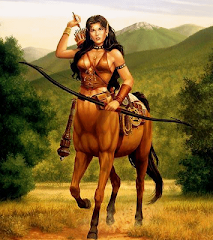


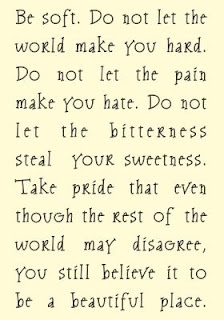





















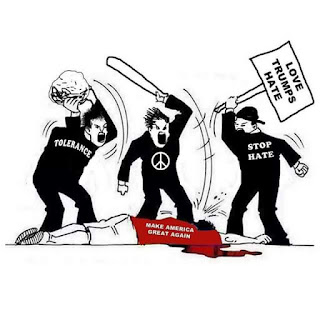




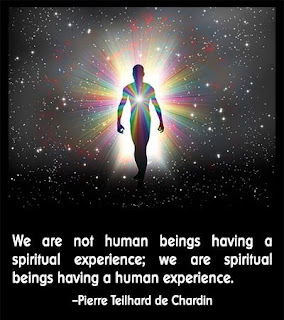




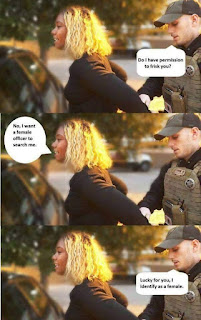
No comments:
Post a Comment